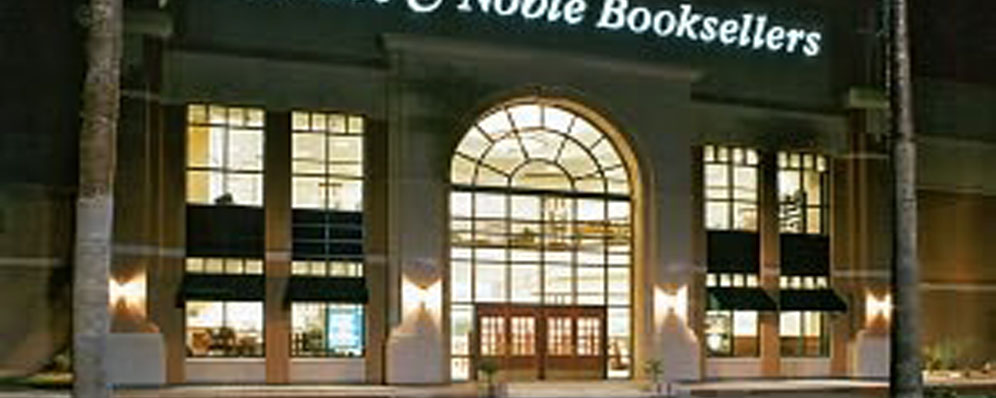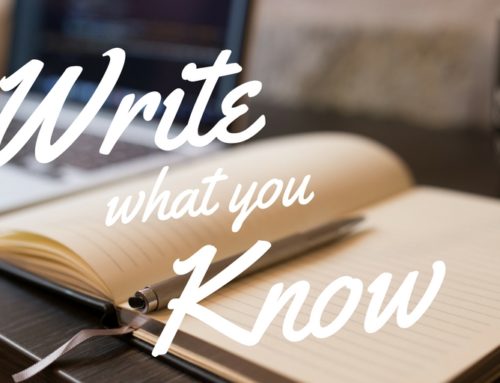“Absolutely not!”
Those were among the first words of encouragement I heard as I embarked on my quest to have my indie book carried in a major retailer’s store. They were uttered by a Barnes & Noble customer service rep who, after saying I must go through their corporate headquarters, was responding to my follow-up question, “So … I can’t do this on a store-by-store basis?”
Oh well! Going through corporate headquarters is one of my favorite things to do because it always works out well for me and is not frustrating or time-consuming at all. In fact, all I had to do to get my book into Barnes & Noble stores was become a “vendor of record” in order to establish a “stocking relationship.” Whoa, Barnes & Noble! I think we’re moving a little fast here. I am a virgin. To stock. (Not sex.) (I’ve had sex before, OK?)
Anyway, where was I? Oh yes. Vendor of record. All I had to do to become a vendor of record was fill out this simple six-page publisher information form and OOPS. I’m already a vendor of record, dummy. I became one when my book was published by IngramSpark, by way of and thanks to The Editorial Department, evidenced by the fact that the book is already on sale at barnesandnoble.com. I definitely didn’t waste forty-five minutes figuring this all out, by the way.
So yeah, Barnes & Noble and I already had a stocking relationship, and I felt pregnant with the implications. All I really needed to do now was submit my book for retail store placement and my profit/fame baby would be born.
If you would like your title to be considered for placement in Barnes & Noble stores, please submit a copy of the book (no manuscripts, please), along with marketing and promotion plans,
Marketing and promotion plan 1: Get book in Barnes & Noble stores
Marketing and promotion plan 2: $$$$$$$$
trade reviews,
LOL
and a note describing what makes the book unique, to:
The Small Press Department
Barnes & Noble, Inc.
122 Fifth Ave
New York, NY 10011
I figured I could BS my way through marketing and promotion plans (or at least steal some of Beth Jusino’s ideas) and the book is certainly unique, but I definitely did not have any trade reviews. So I reached out to B&N directly with the following email:
I had a question regarding retail placement for my indie book. I want to submit my book along with the required info to B&N’s Small Press Dept.; however, the book has no trade reviews. Can my book still be considered without any trade reviews?
It should be noted that if I did have trade reviews, those trade reviews would undoubtedly specify that the book is awesome.
-Mike
P.S. what is a trade review?
That email was real except for the postscript. I didn’t want to sound like an idiot. I mean, that was obviously a joke. Ha, ha … everyone knows what a trade review is.
While I waited for a response, I thought, wait, why am I doing this again?
– – – – – – –
Here is my impression of your typical person in a bookstore:
WHAT? How did I get here and what is happening? Maybe I should pick out one of these things to read? But which one?
Admittedly, that is a terrible impression because it’s the opposite of who I truly believe the bookstore patron to be—someone with a purpose who is not looking to spend $28 on a book they’ve never heard of.
So I wasn’t all too enthused about trying to get my book into stores. It seemed like a lot of work for … what, exactly? So my parents’ 86-year-old neighbor, who thinks Amazon is a forest, could be driven to the local Barnes & Noble so she could buy the book written by the boy who used to mow her lawn (a.k.a. the Amazon)?
Unfortunately for me, I was not the only one invested in this, as my book happens to be about my father-in-law. Did he want the book in bookstores? Despite my reasoned argument why it wouldn’t necessarily be worth the effort, yes. Yes he did. In fact, he thought it already was in “all the stores,” and, when I happened to call him one day, he was fresh off an embarrassing episode in which a local B&N manager assured him she could order the book to the store, although he would have to pay full retail price plus shipping. He rudely declined on account of being featured on the cover of the book he was inquiring about. Does Rich Dad, Poor Dad get treated like this? Pfft.
This also serves to explain why I am attempting to get my book in, of all stores, Barnes & freakin’ Noble. Because my father-in-law is out for revenge. And not just one B&N because, apparently, that’s impossible. But all of them.
– – – – – – – –
So there I was, waiting for an email re: trade reviews question. Which reminded me that I forgot to ask if they would also ignore my book’s nonreturnability.
Yes, indie publishers like myself are burdened with, or relieved by, depending on the perspective, flagging their books as nonreturnable. If a book is returnable, it means a retailer like Barnes & Noble can place an order for say, 5,000 books, and if 2,500 of them go unsold, they can simply return them for reimbursement. The cool thing is that the publisher will take care of all that mess, but the other thing is that the publisher is you. So, not cool.
As an indie author who exerts enough effort making others aware of the book and coercing them to buy and then read it, you know for darn sure I ain’t dealing with returns. If someone tried to return just one book for a refund, I would simply write “HA HA, GOOD ONE” on the package and throw it back in the mail.
To recap everything thus far, my book is an ideal candidate for in-store distribution at B&N based on the following factors:
- no funding for a nationwide marketing plan
- no plan, generally speaking
- no trade reviews
- book is nonreturnable
That’s the bad news. The good news is that Barnes & Noble never returned my email, so I decided to get back in touch with them directly since that worked so well the first time.
After enduring a few more low-level customer service reps whose responses to my inquires ranged from “derp” to “durrrr,” I was put in touch with Suzanne, who I was told was in charge of such matters even though her name is not really Suzanne.
Suzanne was at least receptive, and humored me even after making it abundantly clear that B&N would not consider a title that’s nonreturnable. Still, if I could give her the ISBN, she’d be happy to take a look.
In my mind, here is what would happen: The page loads. Suzanne, seduced by the book’s cover —“Wow, that’s an eye-catcher!” she says half to me, half to herself—leads her to browse its synopsis. She chuckles to herself. She opens another tab to skim the reviews, including the one posted by my mom, who cleverly used the alias “Rusty” instead of “Mike’s mom, Judy.” “You know what?” Suzanne asks rhetorically. “I don’t normally do this, but … send the book to me personally. I’m very intrigued, and I’ll see what I can do. But Mike, whatever happens, know this—I BELIEVE IN YOU AND YOUR BOOK.”
This is how the conversation went in reality: Suzanne confirmed with me she was looking at the correct book. She said, “Wow.” My ears perked up. She continued. “That’s expensive for a hardcover. Any plans for paperback?” I said, “I was thinki-” but she cut me off to say the following:
“Forget it. Don’t waste your time and money sending it in because we’re not going to show it to the buyers.”
One more time, with feeling.
“Forget it. Don’t waste your time and money sending it in because we’re not going to show it to the buyers.”
ALRIGHTY THEN.
I has a sad. To make myself feel better, I walked across the street to the local coffee shop for an iced latte, thinking things to myself along the way like If I only had a trade review and Is revenge a dish best served with returnability? and I thought THEY were the buyers. Who are the buyers?
It was the same coffee shop where I hosted my book signing a few months back. The owner, Lisa, is very friendly to local artists, musicians, and writers, and as a fellow former east coaster, she’s become a friend over the years. As I stood there talking to her while she made my drink, I noticed on the shelf next to me a stack of books for sale that were written by a local author.
“Lisa,” I said, “does this book sell?”
“I’ve sold a few, yeah, but her first book did much better here.”
“Hmmm.”
And before I could even get the question out, she said, “I told you at the book signing I wanted to sell your book here, right?”
I told her she hadn’t, but I accepted. Lisa, who had read and enjoyed the book, said she’d be thrilled to push it to any of her customers who asked.
It wasn’t B&N—or even a bookstore, really—but it almost certainly would serve me and the book better than further pursuing major retail placement. I’m not sure if this will appease my father-in-law, but Lisa, like him, is Italian with Brooklyn roots, so he’s obliged to trust her.
When I brought a stack of books to the coffee shop the following week, I jokingly told Lisa they were nonreturnable, so they better sell. I then asked her how she wanted to split the profits on each book sold, but she refused to take any money.
“Absolutely not,” she said.






